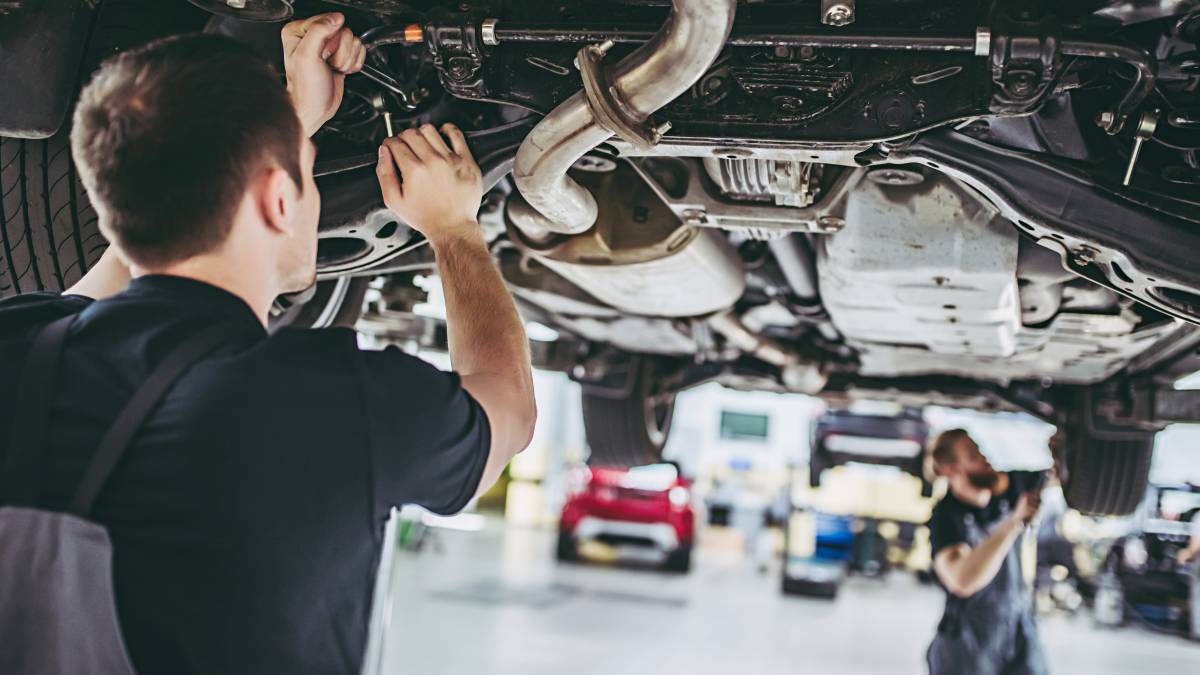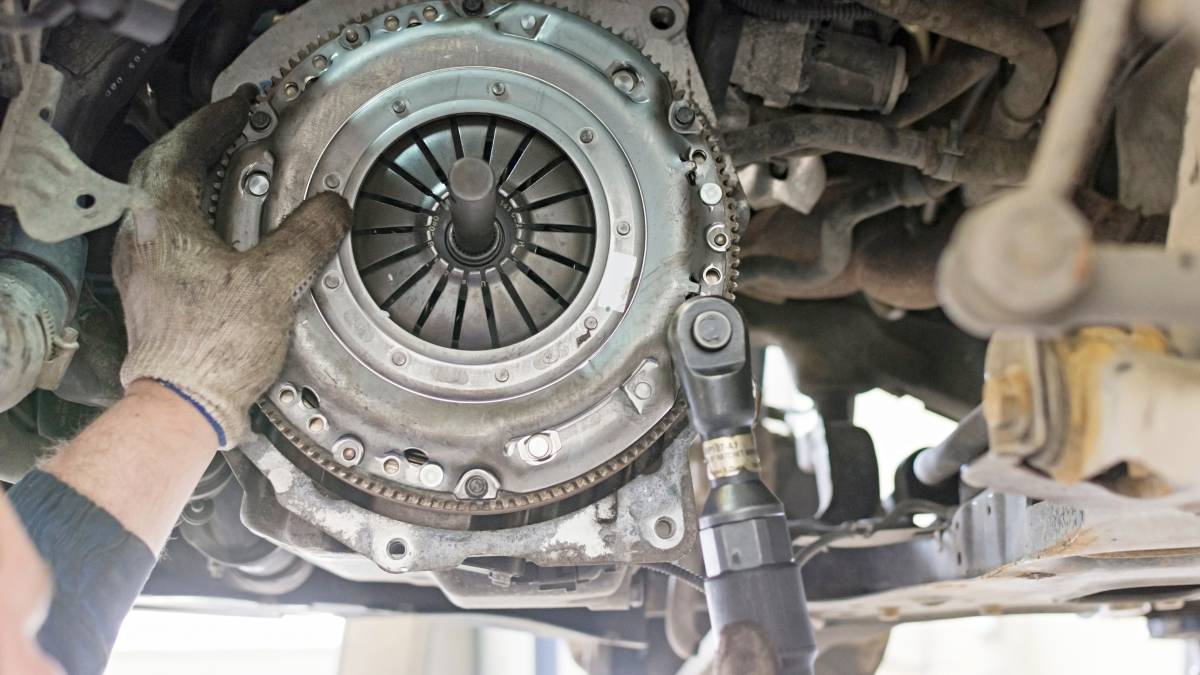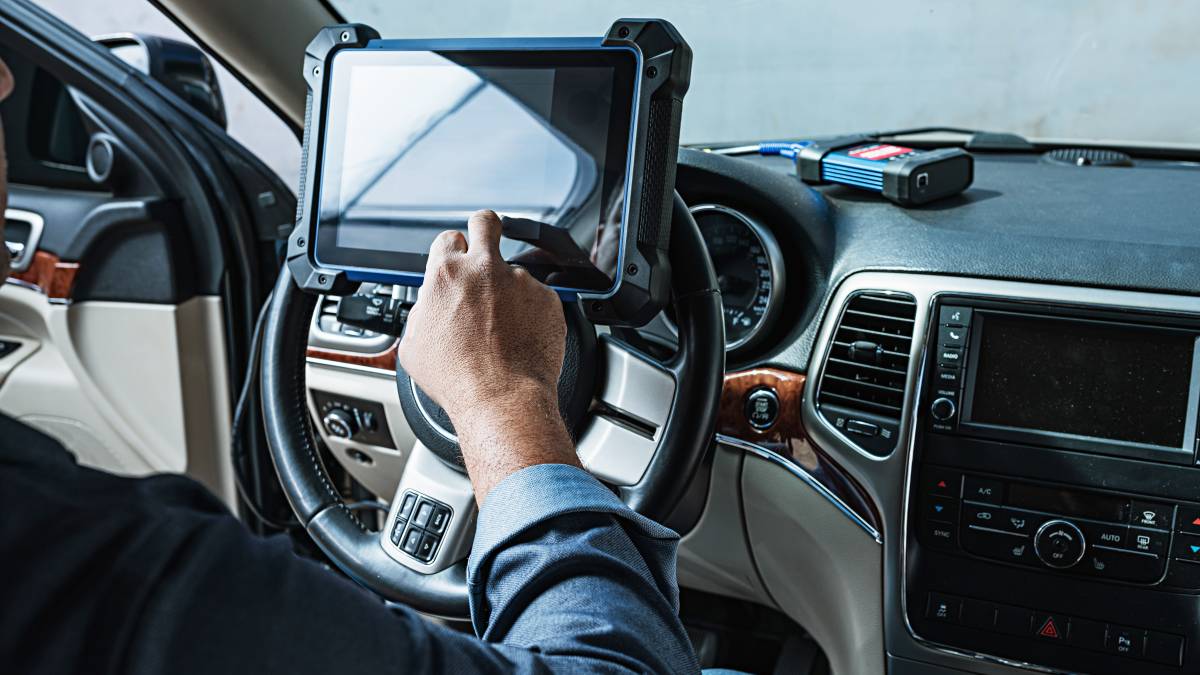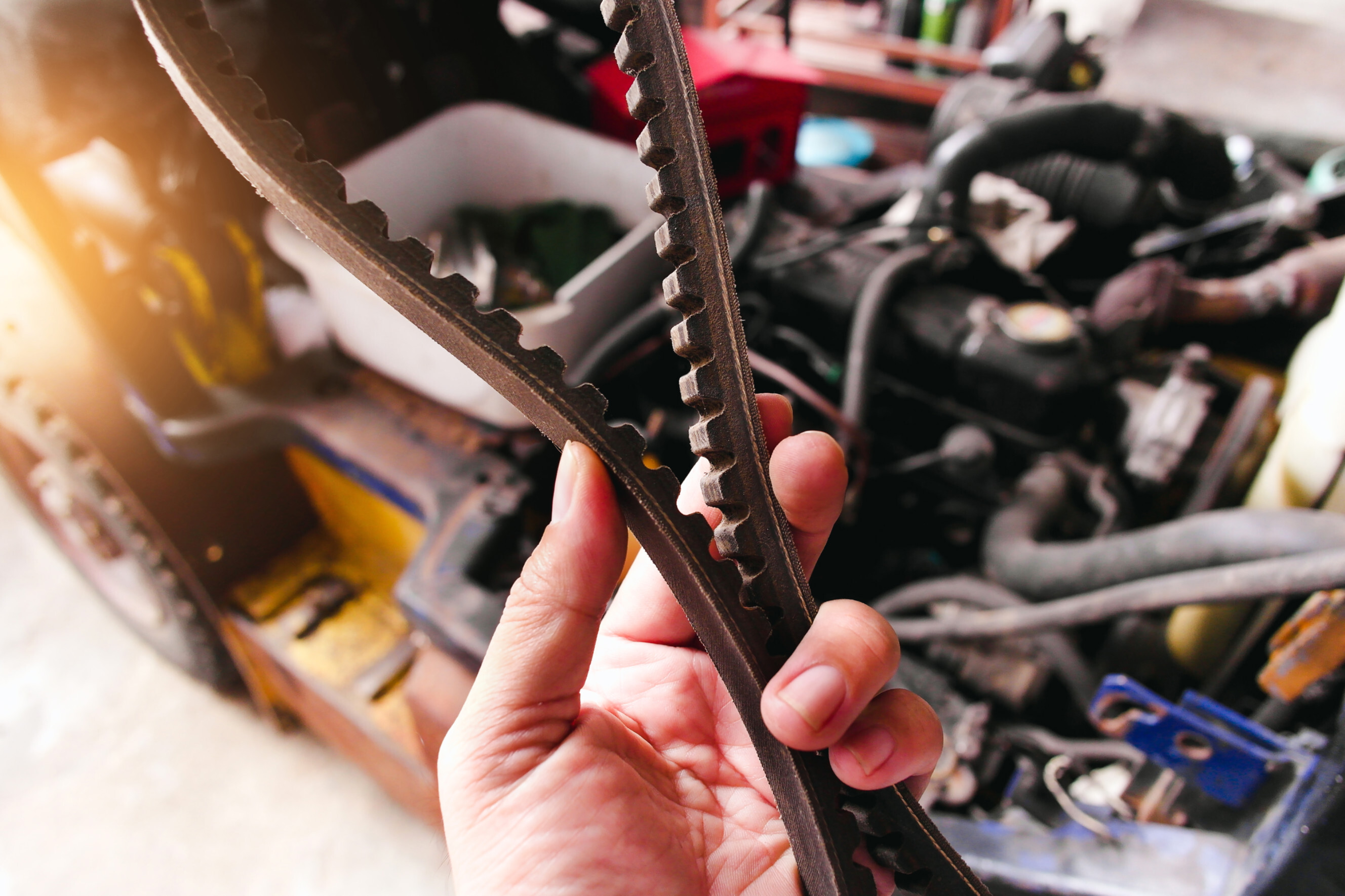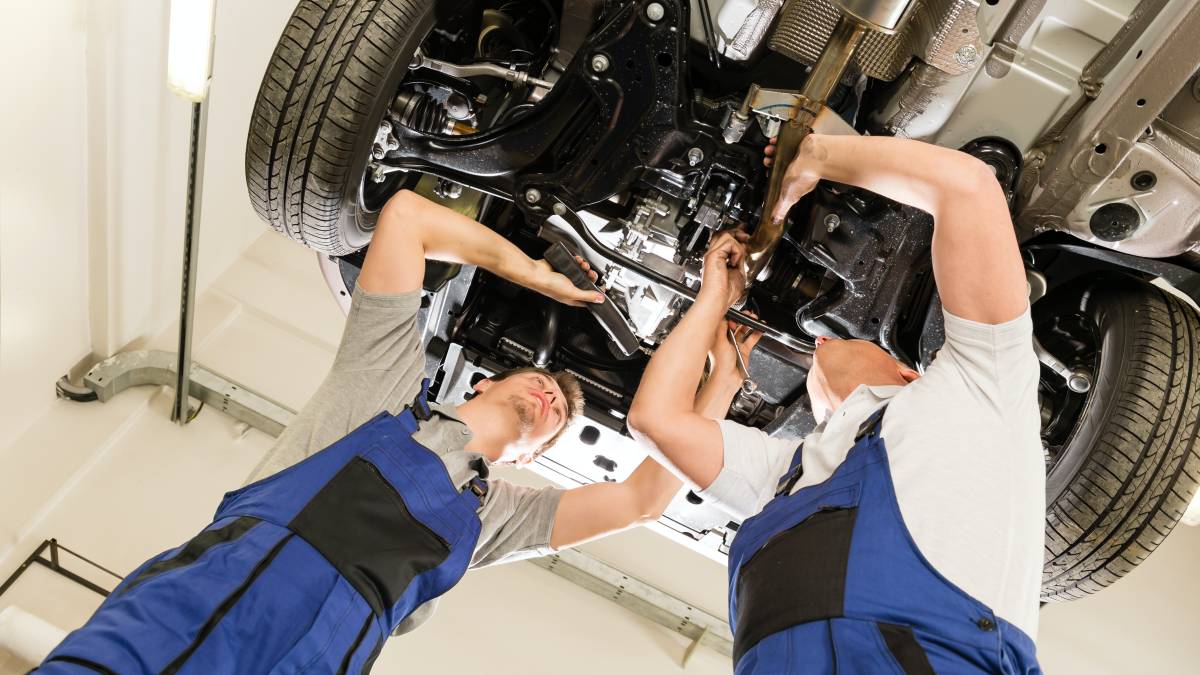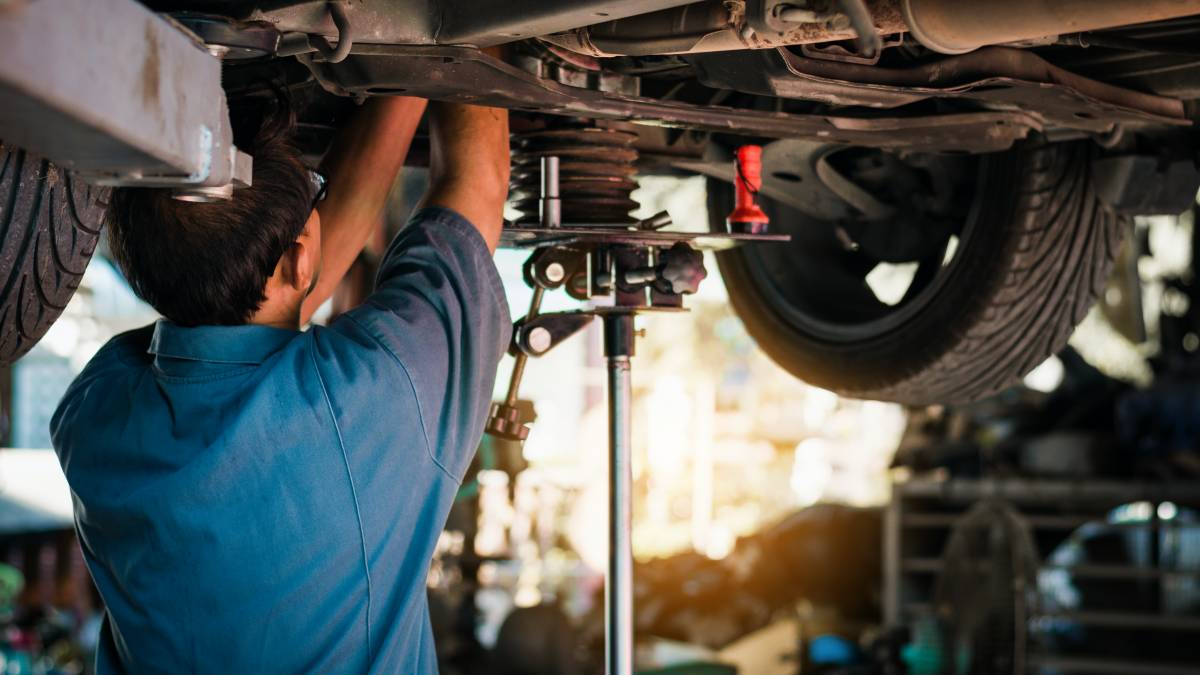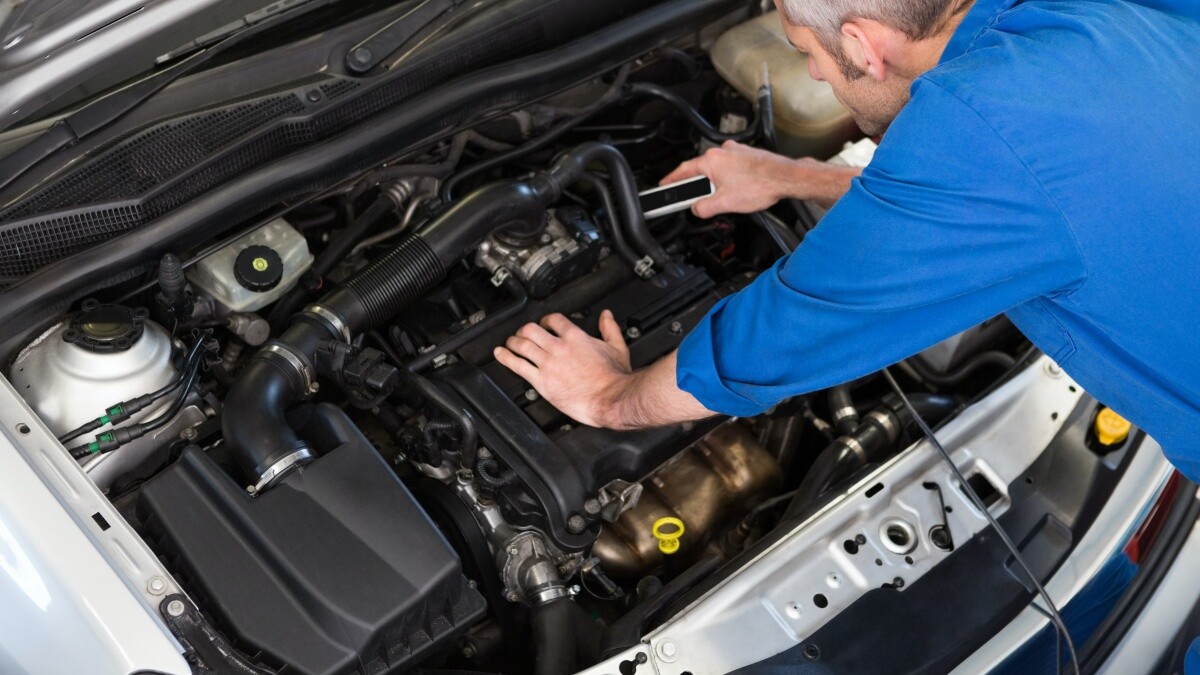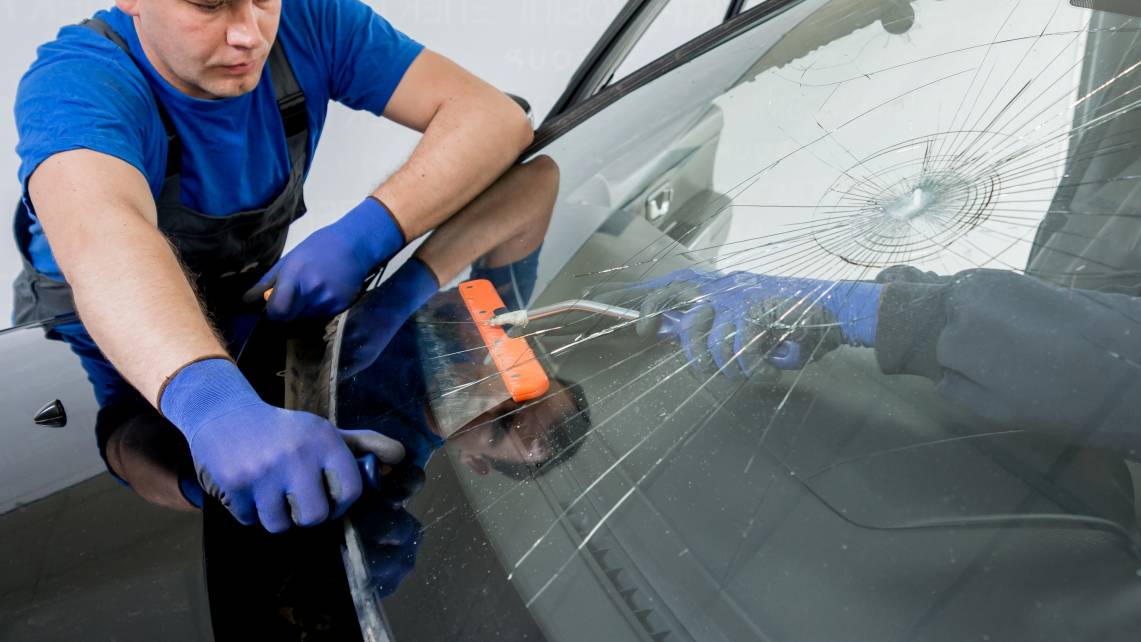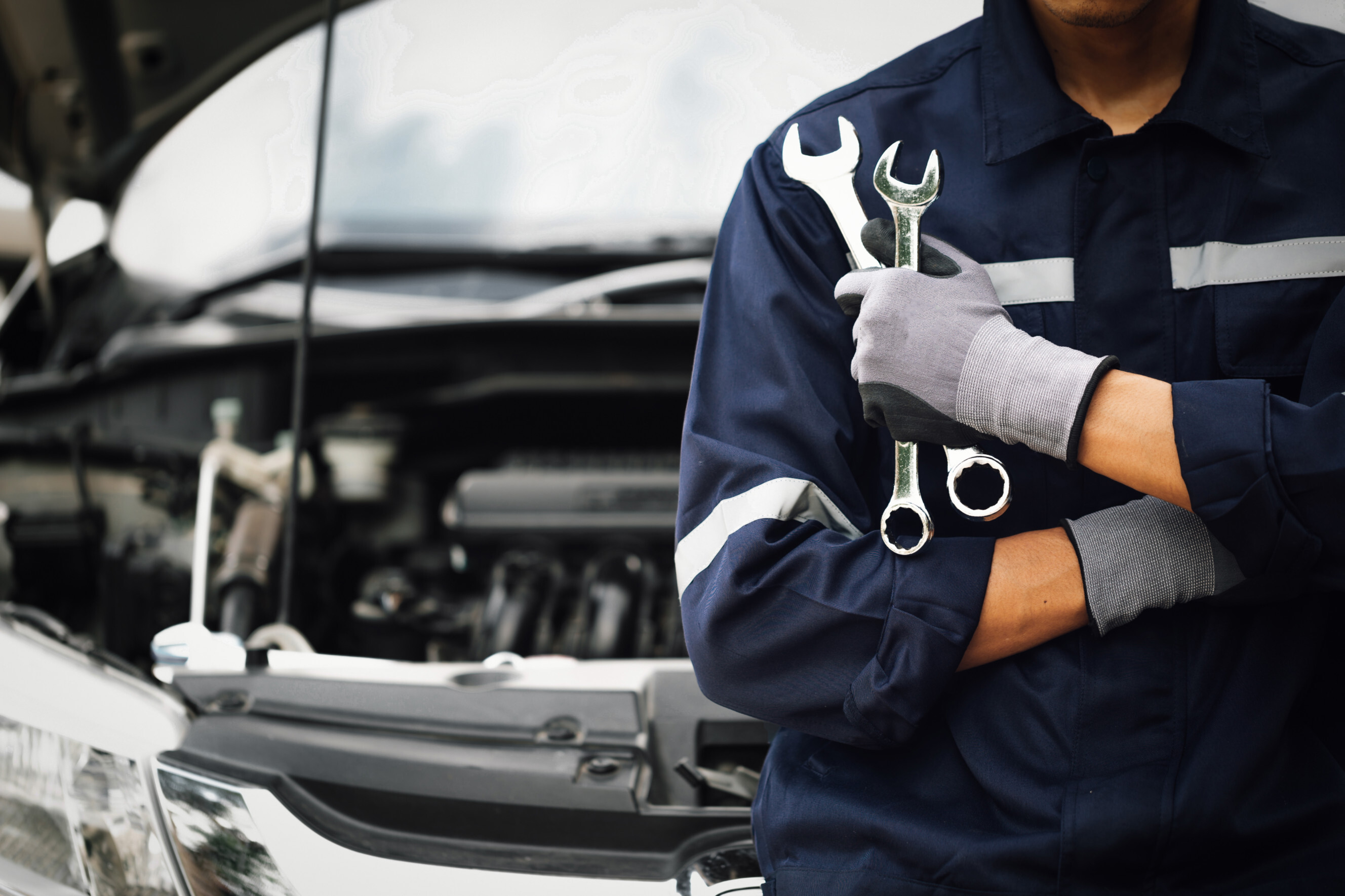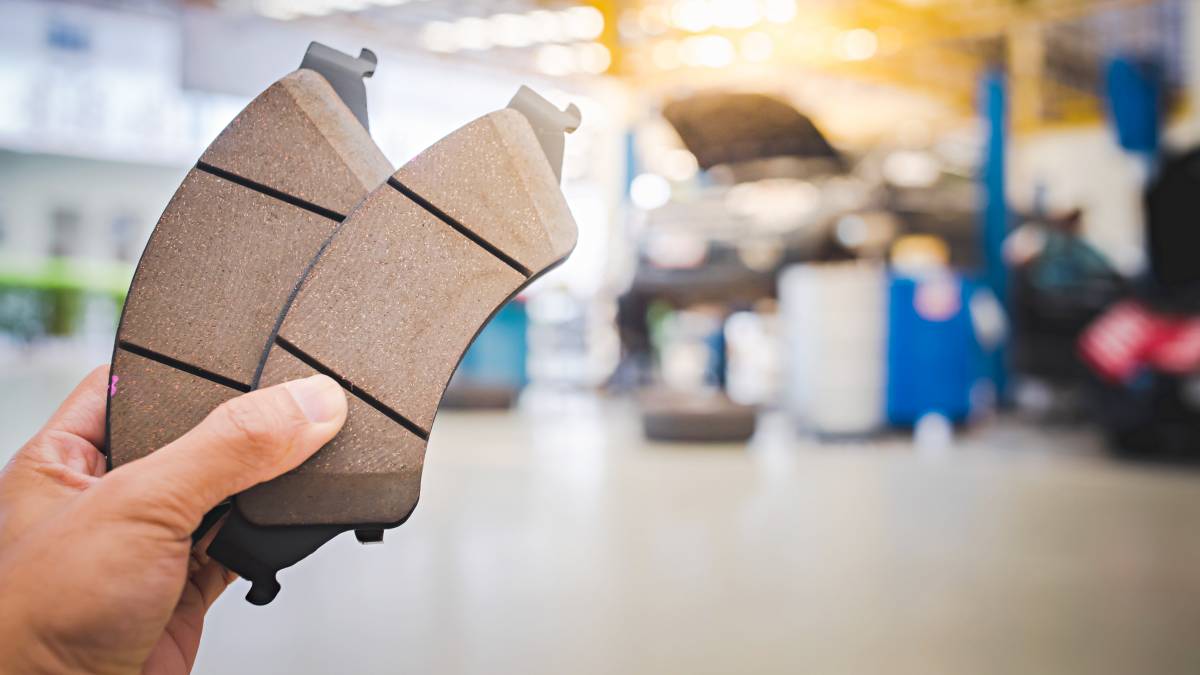
- Home/
- Costs/
- Brake Pad Replacement/
- Brake Pad Replacement Cost
How much does brake pad replacement cost in the UK?
Post to find a price. It's free and only takes a minute.
Average cost to get your brake pad replaced
£99 - £350
low
£99
median
£224
high
£350
Last Updated on

Written by Cielo B.
Staff Writer

Reviewed by David L.
Automotive Expert
Read more about our contributors
Key Facts
Brake pad replacement costs £104 to £134, while a full brake job (pads and discs) typically ranges from £189 to £239.
Premium or performance vehicles such as BMW and Mercedes incur higher costs due to specialised parts and higher labour rates.
Organic and semi-metallic pads are more affordable; ceramic and carbon-ceramic pads, while pricier, offer better performance and longevity.
When it comes to replacing your brake pads, you'll generally find the average cost for the front set falls between £104 and £134, while the rear ones are typically around £99 to £129.
However, if you're looking at a full brake service (including both brake pad and disc replacements) prices usually range from £189 to £239 for the front and £184 to £234 for the rear.
It's also worth noting that costs rise for high-performance cars, starting at £350 for front or rear pads. Using genuine OEM parts can also further increase costs, compared to aftermarket or OE brake pads.
Basically, the type of vehicle you own will determine the cost of replacement parts like brake pads and discs. Labour charges can also affect costs, but they vary widely depending on your location.
What are brake pads, and why are they important?
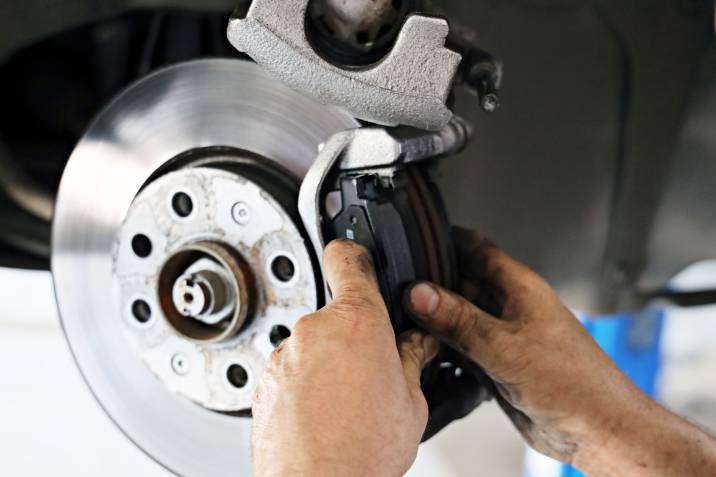 Installing new brake pads is a hands-on job that’s crucial for safe braking performance. (Source: iStock)
Installing new brake pads is a hands-on job that’s crucial for safe braking performance. (Source: iStock)
Brake pads are an integral part of your car's braking system. Simply put, they act as the cushion that stops your wheels from spinning. Your brake pads are attached to the calliper, which is attached to the disc, which turns the wheels. Every time you hit the brakes, the calliper presses the brake pads to the disc, and upon contact, slows down the vehicle.
Once your brake pads are worn out, your brakes reduce their effectiveness. Worn-out brake pads could further damage your calliper and disc, which poses a significant risk of an accident. When you think about it, brake pad change costs are a small price to pay for your safety. If you're wondering how much brake pads cost to replace, you can refer to the price lists below.
Brake pad replacement price list
The cost of replacement parts, such as brake pads and discs, will ultimately depend on the vehicle brand. Luxury vehicles such as Mercedes and BMW typically have higher costs compared to Vauxhall or Ford.
Here's a table showing the average cost of brake pad replacement by vehicle brand:
| Vehicle brand | Average brake pad replacement cost |
|---|---|
Toyota |
£195 |
Ford |
£189 |
Vauxhall |
£210 |
Volkswagen |
£265 |
Mercedes |
£361 |
BMW |
£380 |
The brand of brakes can also factor in price. For instance, choosing Brembo or Bosch brakes will cost more than Pagid brakes, even though these brands are all considered premium brake pads. This is because Brembo and Bosch brakes are equipped with advanced anti-friction materials and other additional features, thus the higher price point.
However, it’s important to note that the more expensive brands don’t necessarily mean you should choose them. Price doesn’t always mean better quality, as they all must meet a minimum standard.
Labour cost estimates for brake pad replacement
Here's a table showing the average brake service cost in your city:
| City | Average labour cost |
|---|---|
£280 |
|
Birmingham |
£205 |
Manchester |
£212 |
Liverpool |
£247 |
Newcastle |
£255 |
Glasgow |
£192 |
What are the signs of worn brake pads?
Here are some indications that it's time to replace your car's brake pads:
1. Electric brake sensor warning
In some car models, the very first thing you’ll notice is a service warning light on your dashboard, triggered by an electric brake sensor. This means your brake pads are wearing thin and it’s time to visit your dealer or local mechanic to get them inspected and quoted for replacement.
2. Reduced braking performance
Brake pads don’t typically cause noticeable braking issues unless they’re completely worn down past the manufacturer’s minimum thickness, usually around 2mm to 3mm (from the starting 12mm to 13mm).
However, if you find yourself needing to press the brake pedal harder to stop, it’s a clear sign that your brake pads and discs are worn out. You’ll also notice that your car tends to pull to the left or right when braking, especially if one side is more worn than the other. If you’re unsure, it’s worth having a mechanic check things out.
4. Soft and spongy brakes
When your brake pedal feels soft or spongy and goes lower than it should, it’s a clear sign to speak to a mechanic. While it’s possible that your brake pads are worn down, this issue may also point to a problem with your brake fluid, such as low levels or air in the brake lines. It’s best to get a quote and have the entire braking system inspected to pinpoint the exact cause.
Luckily, many brake service centres, such as Kwik Fit and Halfords, offer free brake checks to pinpoint the exact cause. After checking your car’s braking system for you, they’ll most likely offer to fix them if they find any issues. Don’t be pressured into letting them do the work. It’s best to shop around and get a couple of quotes first for the best price.
5. Squealing and grinding noises when braking
Squealing or grinding noises are sometimes caused by small rocks stuck in your braking system. They usually go away once the braking system grinds up the particles. However, these sounds are more often a warning sign of worn-out brake pads. When the pad material wears down completely, the metal backing plate can come into direct contact with the disc, creating a harsh grinding noise.
Many brake pads are also fitted with metal wear indicators that produce a high-pitched squeal once the pads reach a certain wear level. Ignoring them causes brake pads to be ground into nothing, which could lead to losing all braking power.
Once you’ve determined your car needs a brake pad replacement and brought it to a mechanic, make sure to follow the 30-30-30 rule to ‘bed’ the new pads in: Make 30 stops from 30 miles per hour (mph), and after each stop, let the brakes cool for about 30 seconds. This ensures the brakes will bed in and adjust well to the discs, preventing brake fade or the sudden reduction of braking power in your newly installed brakes.
Factors affecting brake pad replacement costs
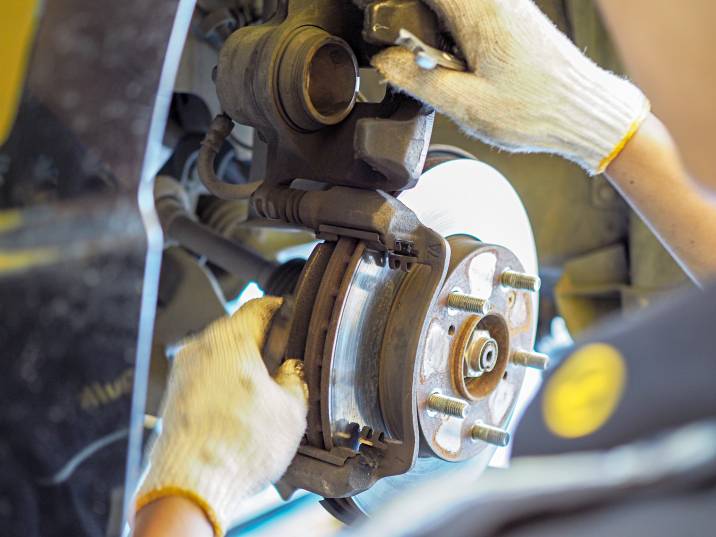 Replacing worn-out brake pads—expect to pay more if callipers or rotors need attention too. (Source: iStock)
Replacing worn-out brake pads—expect to pay more if callipers or rotors need attention too. (Source: iStock)
Replacing brake pads isn’t as simple as changing your tyres because it could involve fixing the other parts of your braking system. This is why you’ll likely receive varying quotes from mechanics and technicians for this type of service. One way to help you anticipate the costs is by considering these factors:
Number of brake pads
How much does it cost to replace four brake pads? Based on the earlier price estimates, the cost of replacing all four brake pads is between £210 and £263. Meanwhile, the total cost of a complete brake pad and disc replacement for all four wheels can vary widely, ranging from £200 for small vehicles like saloons to £700 for large vehicles like SUVs.
Type of brake pads
Most consumer vehicles use either disc brakes on all four wheels or a combination of disc brakes in the front and drum brakes in the rear. But since the front brakes handle most of the stopping power, they typically wear out faster and need more frequent replacement.
Brake pads also come in different materials. Standard friction materials, like organic or semi-metallic pads, are common in everyday vehicles and offer reliable stopping power at an affordable price. On the higher end, ceramic and carbon-ceramic brake pads are designed for high-performance vehicles costing hundreds of thousands. They typically cost more than £10,000, especially if you’ll have them replaced at a car dealer.
Before buying new brake pads, check whether your vehicle needs wear sensors. They are required when fitting new brake pads as they monitor the pads’ condition. It’s also best if the pads come with a fitting kit, which includes all the essentials for installing them.
Vehicle make, model, and size
It would cost more to replace the brake pads of a supercar or a pick-up truck than a mid-sized saloon or a small, entry-level hatchback. Size is a factor since a bigger vehicle by size or by horsepower requires stronger, heavy-duty brake pads to operate safely. Also, more expensive car brands and models tend to have pricier parts.
Leave brake pad worries behind with Airtasker
If you further delay replacing your car’s broken brake pads, you’re not only compromising your safety, but you’ll also have to deal with higher repair bills as the issue worsens.
Airtasker can help you find the right mechanic or technician for brake pad replacements. Simply posting a task on our platform lets you connect with trusted professionals and choose the right person for the job based on their reviews and experience. Just make sure to indicate the following when requesting a quote on brake pad replacement costs:
Describe any signs of worn brake pads you've observed, such as unusual noises, dashboard warning lights, or a spongy brake pedal.
Specify the type of brake system your car uses – is it disc brakes, drum brakes, or a combination of both?
Your car's make and model.
If you know, mention when your brake pads were last replaced.
Let them know your preferred schedule and your budget expectations.
Indicate whether you'd like them to inspect and quote for both the front and rear axles.
Don’t wait until your brakes are grinding. Have them replaced immediately by a professional so you can safely get back on the road.
Learn more about our contributors

Written by Cielo B.
Staff Writer
Cielo is an experienced content writer who has explored various industries throughout her career. Her expertise, founded on a degree in journalism, includes writing about automotive and home maintenance. Cielo also covers topics like dressmaking, tailoring, and photography since she is a passionate cosplayer who enjoys dressing up as her beloved anime characters.

Reviewed by David L.
Automotive Expert
David is an experienced mechanic who has been servicing a diverse fleet of vehicles, from compact cars to large vans, for over a decade. His expertise lies in vehicle maintenance, but he has extended his practice to auto electricals to meet the servicing demands of modern and advanced vehicles. Although he mostly works independently, he ensures that the vehicles are in tip-top condition, taking great care when replacing critical components like brake pads.
The Reviewer Badge is awarded to individuals who are experts in their respective fields and evaluate the content to ensure its accuracy and relevance to the task at hand.
FAQs about brake pad replacement
If your disc and callipers aren’t damaged and your braking system doesn’t have urgent issues, it’s perfectly okay to replace just your brake pads. However, if the system has been severely damaged, it might be better to overhaul it.
Brake pads will usually last anywhere between 24,855 m to 37, 282 m. But this can change depending on your driving habits, environment, and brake material. Following your vehicle’s standard service interval, your mechanic should be able to tell you when your brake pads are due for replacement.
It’s possible to replace all four brake pads. But under normal conditions, you won’t replace all of them at once. Brake pad replacement is usually done in pairs. So you’ll only need to cover either rear or front brake pad replacement costs. Since your front wheels do most of the braking, these tend to be replaced sooner.
Keep in mind also that most car parts shops will only sell discs in pairs, as they are typically priced individually. Meanwhile, brake pads are often priced as a pair.
Find brake pad replacement experts, fast
Post a task
Related price guides
Related articles
